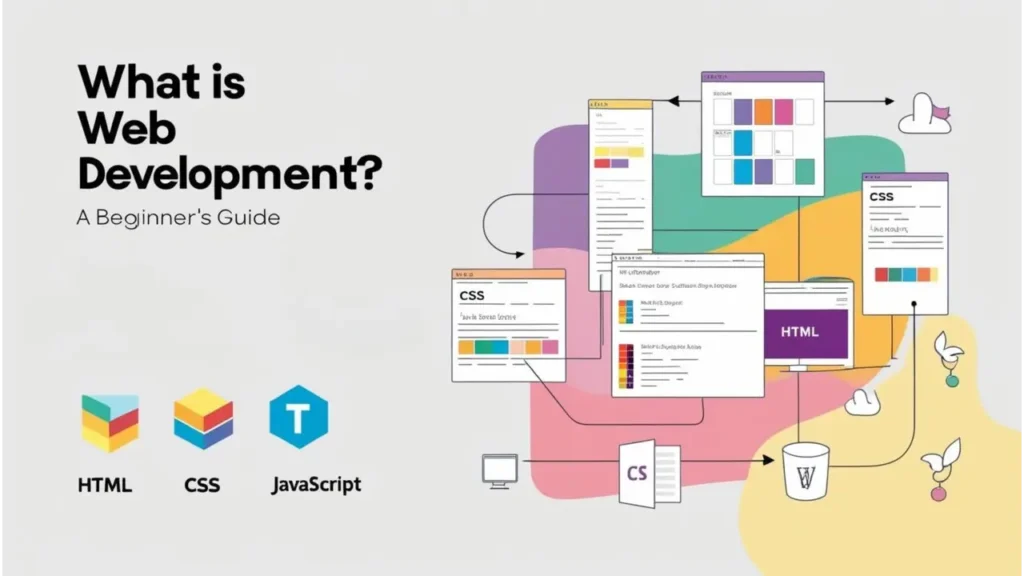Launching a startup or running a small business often means operating within tight budgets. As exciting as entrepreneurship can be, the reality is that many startups and small businesses face significant challenges when it comes to promoting their products or services without breaking the bank. However, marketing is essential for growth, visibility, and customer acquisition, even when financial resources are limited.
The good news is that with smart, data-driven approaches, you don’t need a massive marketing budget to make an impact. In this blog, we will explore cost-effective strategies for startups that will help you build a strong marketing presence, reach your audience, and drive conversions without overspending.
Key Takeaways
- Understand Your Audience
- Leverage Content Marketing
- Utilize Social Media
- Optimize for SEO
- Embrace Email Marketing
- Consider Influencer Marketing
- Measure and Optimize
- Explore Collaboration
Table of Contents
Understanding Your Market: The First Step for Budget-Friendly Marketing
Before diving into specific strategies for startups, it’s crucial to first understand your target audience. Knowing who your customers are, what they want, and where they spend their time will allow you to focus your limited resources on the right efforts.

Define Your Target Audience
Start by creating a clear picture of your ideal customer. This involves answering questions like:
- What demographic characteristics (age, gender, location) define them?
- What are their pain points, needs, or desires?
- Which online platforms or communities do they engage with?
- What type of content do they consume, and what influences their purchasing decisions?
A well-defined target audience enables you to tailor marketing strategies that are both targeted and efficient, helping avoid wasting time and resources on outreach that won’t convert.
Analyze Your Competitors
It’s also helpful to understand how your competitors are marketing their products or services. This can provide valuable insights into what works in your industry and help you refine your strategies without costly trial and error. Tools like SEMrush and Ahrefs allow you to analyze competitor content, keywords, and backlinks, helping you gain a competitive edge.
Cost-Effective Marketing Strategies for Startups
With a clear understanding of your target audience and competitors, you can now develop a marketing plan that leverages your strengths, focuses on high-ROI activities, and maximizes the effectiveness of your budget. Here are some cost-effective strategies for startups:

1. Content Marketing: Build Value Without the Price Tag (Strategies for Startups)
Content marketing is one of the most effective and affordable strategies for startups and small businesses. The idea is to create valuable, informative, or entertaining content that attracts your target audience and builds trust over time.
- Start a Blog: Publishing regular blog posts on topics relevant to your audience helps you build authority in your niche, improve SEO rankings, and increase organic traffic to your website. Tools like Google Keyword Planner can help you find relevant topics and search terms to target.
- Create Evergreen Content: Focus on creating evergreen content that remains valuable and relevant over time, such as how-to guides, industry insights, and educational articles. Evergreen content continues to drive traffic long after it’s published and requires minimal updates.
- Leverage Video Marketing: Video content is highly engaging and increasingly popular. You don’t need expensive equipment or a professional production crew to get started. Tools like Canva, InShot, and Loom allow you to create high-quality videos on a budget.
- Repurpose Content: Repurposing your existing content into various formats is another cost-efficient strategy. For example, turn blog posts into infographics, videos, or social media posts. This extends the life of your content, reaching different segments of your audience without additional effort.
2. Social Media Marketing: Engage Where Your Audience Is (Strategies for Startups)
Social media platforms are vital for small businesses and startups to connect with their target audience, build brand awareness, and drive traffic. The key to cost-effective social media marketing is to focus on the platforms where your audience is most active.
- Choose the Right Platforms: Focus your efforts on platforms that align with your business. For instance, if you’re a B2B startup, LinkedIn might be more effective than Instagram or TikTok. If you’re targeting a younger demographic, Instagram and TikTok could be more suitable.
- Organic Social Media Strategy: Create a consistent posting schedule and engage with your followers. Share valuable content, respond to comments, and participate in industry conversations. Free tools like Buffer and Hootsuite help schedule posts and manage engagement, saving time and effort.
- Leverage User-Generated Content (UGC): Encouraging customers to share their experiences or reviews of your product can be a powerful and cost-effective way to grow your brand’s reach. UGC is authentic, builds trust, and encourages others to try your product or service.
3. Search Engine Optimization (SEO): Maximize Organic Traffic (Strategies for Startups)
SEO is one of the most essential strategies for startups with limited budgets because it can drive long-term, sustainable traffic without ongoing advertising costs. When done right, SEO will help your website rank higher in search engines like Google, making it easier for potential customers to find you.
- Optimize Your Website for Search Engines: Ensure your website is SEO-friendly by using relevant keywords in your content, improving site speed, ensuring mobile-friendliness, and optimizing meta tags. Tools like Yoast SEO (for WordPress), Google Analytics, and Ubersuggest can help track performance and discover areas for improvement.
- Focus on Local SEO: If your startup operates locally, optimizing for local SEO is crucial. Make sure your Google My Business profile is complete and accurate, encourage customer reviews, and ensure your business information is consistent across directories.
4. Email Marketing: A Direct Line to Your Customers (Strategies for Startups)
Email marketing remains one of the most cost-effective strategies for startups. Building an email list allows you to maintain direct communication with customers and leads, delivering personalized content, offers, and updates that drive conversions.
- Build Your Email List: Start by collecting email addresses through lead magnets such as free e-books, checklists, or exclusive offers. Encourage website visitors and social media followers to sign up for your newsletter in exchange for valuable content or discounts.
- Personalize Your Emails: Personalized email campaigns perform better. Segment your email list based on user behavior or demographics to deliver targeted content. Automation tools like Mailchimp and Sendinblue allow you to set up triggered emails for consistent, personalized communication.
5. Influencer and Affiliate Marketing: Expand Your Reach (Strategies for Startups)
Influencer marketing doesn’t have to be expensive. Startups can partner with micro-influencers or local influencers who have smaller, but highly engaged, audiences. These influencers are often more affordable and provide excellent returns on investment.
- Micro-Influencer Partnerships: Micro-influencers (1,000 to 100,000 followers) tend to have loyal and engaged audiences. Partnering with them is a cost-effective way to reach your target market through collaborations or commission-based partnerships.
- Affiliate Marketing: Affiliate marketing allows others to promote your products in exchange for a commission when they generate a sale. Setting up an affiliate program is a cost-effective way to expand your reach without upfront costs.
6. Paid Advertising: Focus on ROI (Strategies for Startups)
If you have a small budget for paid advertising, it’s essential to make every dollar count. Platforms like Google Ads, Facebook Ads, and Instagram Ads allow you to target specific audiences based on demographics, interests, and behaviors.
- Start with Low-Cost Pay-Per-Click (PPC) Campaigns: Launch small, conversion-focused PPC campaigns. Start with high-intent keywords and carefully target your audience. By tracking results and optimizing based on performance, you can stretch your advertising budget further.
- Retargeting Ads: Retargeting ads are highly effective for startups, as they focus on users who have already shown interest in your product or service. These ads are usually more affordable and yield higher conversion rates since they target a warm audience.
7. Referral Programs: Encourage Word-of-Mouth Marketing (Strategies for Startups)
Word-of-mouth marketing is one of the most powerful tools available to startups, as potential customers are more likely to trust recommendations from friends and family.
- Implement a Referral System: Tools like ReferralCandy or Yotpo help set up referral programs on your website, encouraging your existing customers to refer new customers in exchange for discounts, free products, or other perks.
8. Collaborations and Partnerships: Team Up to Grow (Strategies for Startups)
Collaborating with complementary businesses or brands is an excellent way to pool resources, share audiences, and grow visibility at minimal cost.
- Cross-Promotions: Partner with other startups or local businesses that serve a similar audience but are not direct competitors. For example, a fitness startup could collaborate with a health food business to offer co-branded promotions.
Measuring Success and Refining Your Strategies
Once you implement these cost-effective strategies for startups, it’s important to track performance and make data-driven decisions to optimize your marketing efforts. Use free tools like Google Analytics, Facebook Insights, and Mailchimp Reports to monitor key metrics like website traffic, conversion rates, and customer acquisition cost.
Conclusion: Marketing on a Budget is Possible with the Right Strategies
Marketing a startup or small business on a budget is challenging but achievable with the right approach. By utilizing these strategies for startups—from content marketing and SEO to influencer partnerships and email marketing—you can build brand awareness, engage your target audience, and drive conversions without overspending.
Remember, marketing success takes time and consistent effort. By staying creative, resourceful, and focused on high-ROI strategies, your startup can thrive and grow even in a competitive market.
Ready to implement these strategies? Focus on the ones that make sense for your business and budget, and start building your startup’s marketing presence today!
Explore further, click here












